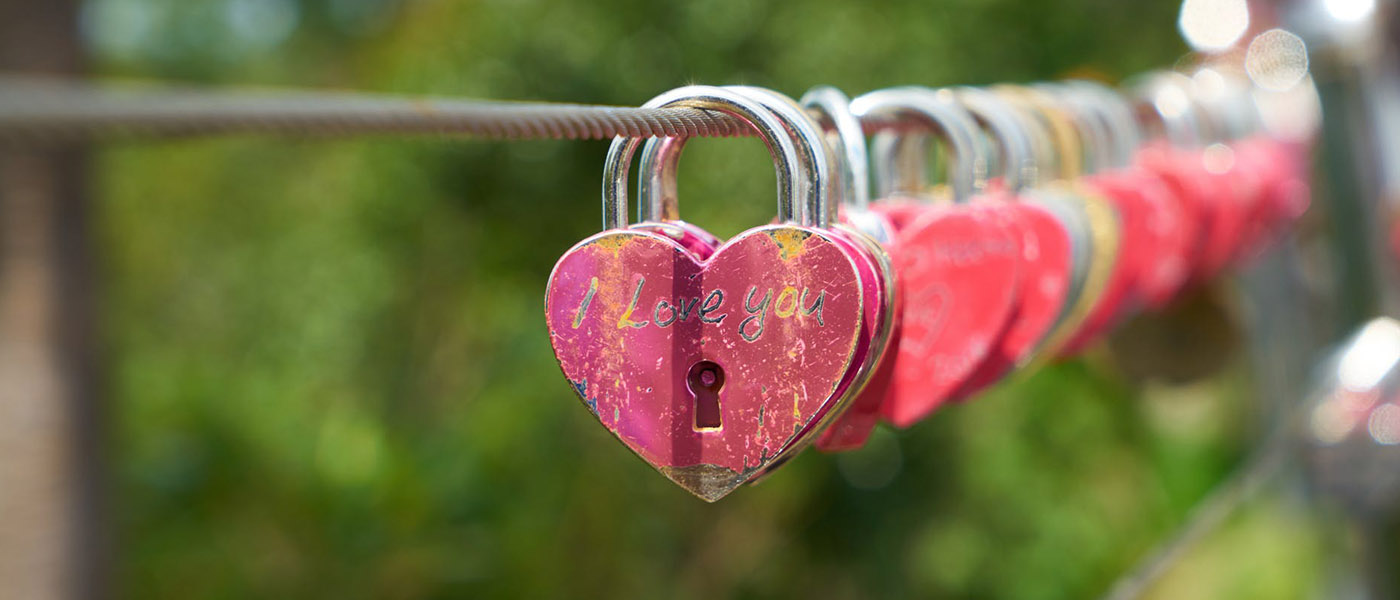

Children's Rights in Islam From Birth to Age 7
children's rights in Islam covers all the years of childhood and infancy and include all the needs of a child in the process of his/her growth
Naming (At birth)
Having a good name is one of the important children's rights in Islam. This is because a good name affects one's mind. A child hears his name day and night; and consequently, the meaning of that name unconsciously strengthens those features which are implied in it.
Therefore, the first duty of a parent towards his/her child is to give him/her a good name at birth. Prophet Muhammad (PBUH&HP) has said: “It is the responsibility of every father to choose a good name for his child "[1].
Male Circumcision (The age of seven days)
According to the researchers, male circumcision reduces many possible diseases in a man's reproductive organ. As one of the children's rights in Islam, it is recommended that the boy be circumcised on the seventh day of his birth. But it is obligatory to circumcise before the boy reaches puberty [i].
Breastfeeding (Birth to 2 years old)
Islam strictly recommends breastfeeding, as one of the most significant children's rights in Islam, besides every day more and more scientific evidence confirms the advantages of this act. Breastfeeding is one of the factors affecting the physical, psychological and ethical characteristics of a baby.
According to the Holy Quran: “Mothers shall breastfeed their children for two whole years…” (2:233). Therefore, it is considered a child's right to be breastfed until the approximate age of two.
It is narrated from Prophet Muhammad (PBUH&HP): “For a child, there is no milk better than the milk of the mother” [3].
Children's Rights in Islam for the Infancy and early childhood (Birth to 7 years old)
This theory has been proved that the human mind at the very beginning is quite blank, and it only gradually that starts using the faculties of sight, hearing, etc.
As it is noted in Holly Quran, “God has brought you from the wombs of your mothers while you did not know anything and He gave you hearing and sight and hearts that you may give thanks” (16:78)
Consequently, the atmosphere of family and society continuously influence the child's mind, although he/she is not aware of this process. Children are reflections of their parents. The best way to inculcate good behavior in children is to treat them with good grace.
It is emphasized in Islamic thought that children should be kept in a nice and respectful environment. Prophet Muhammad (PBUH&HP) said: “Respect your children and behave them in a nice manner” [4].
Although there is no compulsion on children to do religious duties, it is praised to gradually give children religious training. The impressions gained in childhood are very difficult to erase, and if respect and love of religion are infused into his/her mind in childhood, he/she will always remain attached to the religion.
In this stage, the best way of familiarizing the child with religious teachings is performing religious duties in front of him; children are the mirrors of their surroundings.
Imam Baqir (AS) said: “When the child reaches three years, teach him seven times to recite la ilahailla ' llah (there is no God but Allah). Then leave him at that till he is three years seven months and 20 days old; then train him to say Muhammad-un rasul-u 'llah (Muhammad is the messenger of Allah). Then leave him at that till he completes four years. Then teach him seven times to say Salla 'llahu ala Muhammadin wa aali Muhammad (Peace be upon Muhammad and the progeny of Muhammad). Then leave him at that till he reaches the age of 5 years; then ask him which one is his right hand and which one is the left. When he knows it, then make him face Qiblah [i] and tell him to do prostration (Sajdah)” [5].
This is to continue until he is six years of age. Then he should be told to pray and taught The Bowing (Ruku) and Prostration (Sajdah).
Through mentioned methods, the children learn their religious duties without coercion and feeling any burden upon themselves.
Notes:
[i] Imam Sadeq (AS) said: "Circumcise your sons when they are seven days old as it is cleaner and the flesh grows faster and because the earth hates the urine of the uncircumcised" [2].
References:
- Al-Hurr al-Aamili , Wasail al-shiah, vol. 2, p. 618.
- Al-Kafi Al-Kalini, Abu-Ja'afar Muhammad Ibn-Yaqub. Al-furu'min al-kafi. Vol. 6 Tehran: Dar al-kutub al-islamiyyah. 1981:34.
- Mirza Hussayn Nuri ,Mustadrak al-Wasāil, vol. 15, p.156.
- Muhammad Muhammadi Rayshari,Mizan al-Hikmah, vol, 1 , p. 7109.
- Ibn-e Fazl-e Tabarsi,Makarim Al Akhlaq, p. 115.
Share This Article

Family Ties in the Islamic Family
Almost all religions have recommended the maintenance of family ties, but in the Islamic family, it has taken to unprecedented heights. Various Qur'anic verses and narrations (Hadiths) have emphasized maintaining the bonds of kinship (called Silatur-Rahim in Islam) and instruct Muslims to be kind, merciful, affectionate and caring towards parents and relatives; even to non-Muslim relatives or to those who are harsh to them. Why has so much importance been given to family ties in Islam? Who are concerned? What consequences does ignoring this important Islamic advice bring about? Here these and many similar questions are answered.
What is Family Ties (Silatur-Rahim)?
According to definitions with regard to Islamic family, Rahim [i] is anyone who becomes a relative through blood ties with one’s father, mother, uncle, and aunt, or through marriage [1]. And, Silat means kindness and affection. Simply said, Silatur-Rahim means being kind to family and relatives, and keeping a good relationship with them [1].
The Importance of Family Ties
Family kinship, with respect to the structure of Islamic family, is of paramount importance and is known to be the fastest-paid prayer. It brings about a quick reward in this world as well as an afterlife reward. Even the members of a family who are all sinful acquire more wealth by maintaining family ties, and their lives will last longer by doing good to each other [2].
In Surah Nisa it is said: “Be wary of Allah, in whose Name you adjure one another and [of severing ties with] blood relations.” (4:1). In another verse of the Quran, the pledge taken from the Children of Israel that includes worshipping God and being good to relatives is reminded (2:83). Muslims are also told to worship God and be good to parents and the relatives in another verse (4:36). The command to keep family ties right after the instruction of piety and worshipping God in these verses demonstrates that Silatur-Rahim is almost as important as piety in Islam.
In a narration, Prophet Muhammad (PBUH&HP) said that: “I command all the people of my followers (Umma), whether present or not, and those generations which are to come till the Day of Judgement (Qiyama), …, to maintain family kinship even if they live at a distance of a year's journey.” [3]. In another narration, Prophet (PBUH) states that the best of people in morality and behavior are the ones who resume their relationships with a relative who has cut the relation with them [4].
These verses and narrations about family kinship in the Islamic family together with many other ones illustrate the importance of this matter in Islam.
Keeping Family Ties in the Islamic Family: Who are Concerned?
Being a moral and divine duty over every human being, keeping family ties concerns both faithful and unfaithful relatives. Hence, even if parents and other relatives are not religious, one should respect them and try to fulfill their needs.
Imam Sadiq (AS) was asked about the rights of the relatives over one, he (AS) answered: “If they are of the opposite religious ideas, they have family rights that nothing can stop it; and if they are of the same religious believes, they have two rights: family rights and Islamic rights"[5]. When a man asked Prophet Muhammad (PBUH) about how to treat a relative who had harmed and insulted him, the Prophet (PBUH) answered: “Resume your relationship with the one who has broken family bonds with you, grant the one who has deprived you and forgive the one who has harmed you. Whenever you do so, God will protect you against them” [6].
However, the relationship with unfaithful and irreligious relatives, according to the Islamic family, can be maintained as far as it does not lead to committing an unlawful (Haram) act or disobeying other divine commands, otherwise, keeping family ties with unfaithful relatives is not even allowed [7].
The Priorities of Family Ties in the Islamic family
One might have numerous relatives and need to know who should be visited first or whose rights are more important than others’. The priorities are as follows in Islam: parents (and mother is the priority between them); sisters and brothers; relatives through blood ties (uncles, aunts, cousins, etc.); and, relatives through marriage (in-law family, etc.) [8].
To indicate the importance of this ranking, Prophet (PBUH) said: “If one gets five loaves of bread, or five dinars or five dates and wants to consume them, the best way is to donate them to parents. Secondly to use them himself and his family, and then giving them to poor relatives. Then donating to poor neighbors and finally voluntarily giving in the way of God; which is least rewarded.” [9]. It means that these five kinds of donations will be all rewarded since they are in obedience to God’s commands and in His way, but voluntary charity (Sadaqah) is less paid [10].
Imam Hussain (AS) has narrated from Prophet (PBUH) that: “to pay family rights, begin from your own family: first your mother, father, sister, and brother; then other relatives depending on how close they are to you” [11].
Continues Reading: What Does Islam Say about Maintaining Family Ties: Part 2
Notes:
[i] Rahim is a word derived from Allah's special quality, Ar-Rahman (The Compassionate One).
References:
- islamic family
- Ibn Babawayh, “Al-Khisal”, p. 124.
- Shaykh al-Kulayni, “Al-Kafi”, vol. 2, p. 151.
- A. Javadi Amoli, “Mafatih al-hayat”, p. 212.
- Shaykh al-Kulayni, “Al-Kafi”, vol. 2, p. 157.
- Shaykh al-Kulayni, “Al-Kafi”, vol. 2, p. 150.
- A. Javadi Amoli, “Tasneem Tafsir”, vol. 2, p. 560-561.
- A. Javadi Amoli, “Mafatih al-hayat”, p. 219.
- Shaykh al-Kulayni, “Al-Kafi”, vol. 5, p. 65.
- A. Javadi Amoli, “Mafatih al-hayat”, p. 220.
- Shaykh al-Mufid, “Al-Ikhtisas”, p. 219.
Read More

What are the Husband's Rights over His Wife?
When you hear this question the first thing that comes to your mind is probably the following: “Do husbands have rights too?” and "What are husband's rights in Islam?" In today’s modern societies whenever the issue of rights is discussed, particular groups are considered; mainly women and children.
However, it seems that men’s or husband's rights have been neglected or never talked about since no one thought it was necessary!
Here we want to pay our attention to MEN and specifically those men who are involved in family life, say husbands!
Husband’s Status in Family
Since in Islam, the family is seen as an essential entity of the society, the wife-husband relations, their responsibilities and rights over one another is to be seen in the light of their status in the family.
When a man is called ‘husband,’ it means so much to him. He has to provide, has to fulfill his wife’s needs emotionally and economically. There are so many responsibilities that a man as a husband has towards his wife, and when it comes to Islamic culture and teachings, it is even more demanding.
The only provider in Islam is considered to be the husband, and wife has no responsibility whatsoever to provide for the family, unless she works and earns money only for her own pleasure (She may voluntarily, however, support the family financially. As it is the case in many Muslim families nowadays).
The Prophet (PBUH&HP) said: 'Man is the guardian of his family and every guardian has responsibilities towards those under his guardianship' [1].
Also, it is mentioned in the Quran that the husband is the ‘manager’:
‘Men are the managers of women, because of the advantage Allah has granted some of them over others, and by virtue of their spending out of their wealth...’ (4:34)
A modern reader of this verse may wonder why men should be the managers. One of the reasons mentioned in the above verse is due to his financial role in the family: ‘and by virtue of their spending out of their wealth...’
However, one may argue that, in today’s societies, this is not always the case. Today both men and women work, both earn money, both are educated, and they both have the same virtues. Then, what feature(s) of men has made them capable of being in charge of the family?
1. Husband’s Rights: Respect and Obedience
‘Righteous women are obedient..’ (4:34)
What does it mean to be obedient? Can it be applied to today’s societies in which men and women are considered the same?
Modern thinkers have mainly focused on the similarities between men and women to defend women’s rights. They have strived to show that women have the same power as men to build the history [2]. At the end of the day, however, they are two ‘unique’ creatures of God, each of them possessing their beauty and strengths that fit well with his or her purpose of being. This is well addressed in the following verse:
‘And of His signs is that He created for you mates from your own selves...’ (30:21)
The word ‘mate’ in the above verse refers to the fact that man and woman are incomplete on their own, and they need each other [3].
In other words, men are created to be fathers, the same way that women are created to be mothers! Is it not enough to understand their different duties, rights, and responsibilities?
Islam advocates the priority of neither gender; rather it allows every person to fulfill their potentials, without any discrimination.
Alexis Carrel, the well-known French physiologist, and biologist admits the fact that men and women have been made differently according to the law of creation and he also confirms that these dissimilarities make their duties and rights dissimilar [2].
When Islam introduces husband as the manager, it means he is fully responsible for all family affairs. Accordingly, one of his rights is to be obeyed by family members including his wife and children.
What is primarily important here is that there should be a balance between rights and duties for each member of the family. When a family is seen as a big picture in which every member has their own role, different rights and duties of husband, wife and children can be easily explained.
2. Husband's Rights: Sexual Availability
Parallel to his duties and responsibilities, a husband also has some rights over his wife. Sexual satisfaction is one of them. A wife has to sexually submit herself to her husband unless during the wife’s state of menstruation:
‘They ask you concerning [intercourse during] menses. Say, ‘It is hurtful.’ So keep away from wives during the menses, and do not approach them till they are clean’ (2:222)
This is indeed one of the advantages that Islam gives to women to protect them.
One might argue why sexual availability is considered as a duty for the wife and one of the husband's rights? An examination of the philosophy of marriage in Islam will be helpful to find the answer [4].
In Islam wife is considered as husband’s mate towards whom husband take comfort as you can see in the following Quranic verse:
‘And of His signs is that He created for you mates from your own selves that you may take comfort in them, and He ordained affection and mercy between you...’ (30:21)
From the Islamic point of view, if a man is sexually and emotionally satisfied at home he will be protected against corruption outside. Same goes for women of course; hence we have many instructions for men on how to care for their wives and pay attention to their sexual needs.
Last word...
We can never talk solely about husband's rights or wife’s rights. They are members of one social unit called ‘family’; a unit that is of high value and importance in Islamic teachings. Husband, like the wife, has his own rights and duties.
As for his duties, he is considered as the only provider for the family, and as the guardian, he has to take care of his wife and children. As for husband's rights, he has to be sexually and emotionally satisfied by his wife. Also, as the manager of the family, the husband is to be obeyed.
Wife and children must recognize the role of man in the family for the family to stay on the right track. However, man is to provide whatever means possible to fulfill his wife's and children’s needs emotionally and economically.
References:
- Mustadrak, vol 2, p 550.
- Mutahhari Murtadha, The Rights of Women in Islam
- Almizan, Tafir, Vol 16. Sura Rum, verse 21
- The Importance of Marriage in Islam’,
Read More

